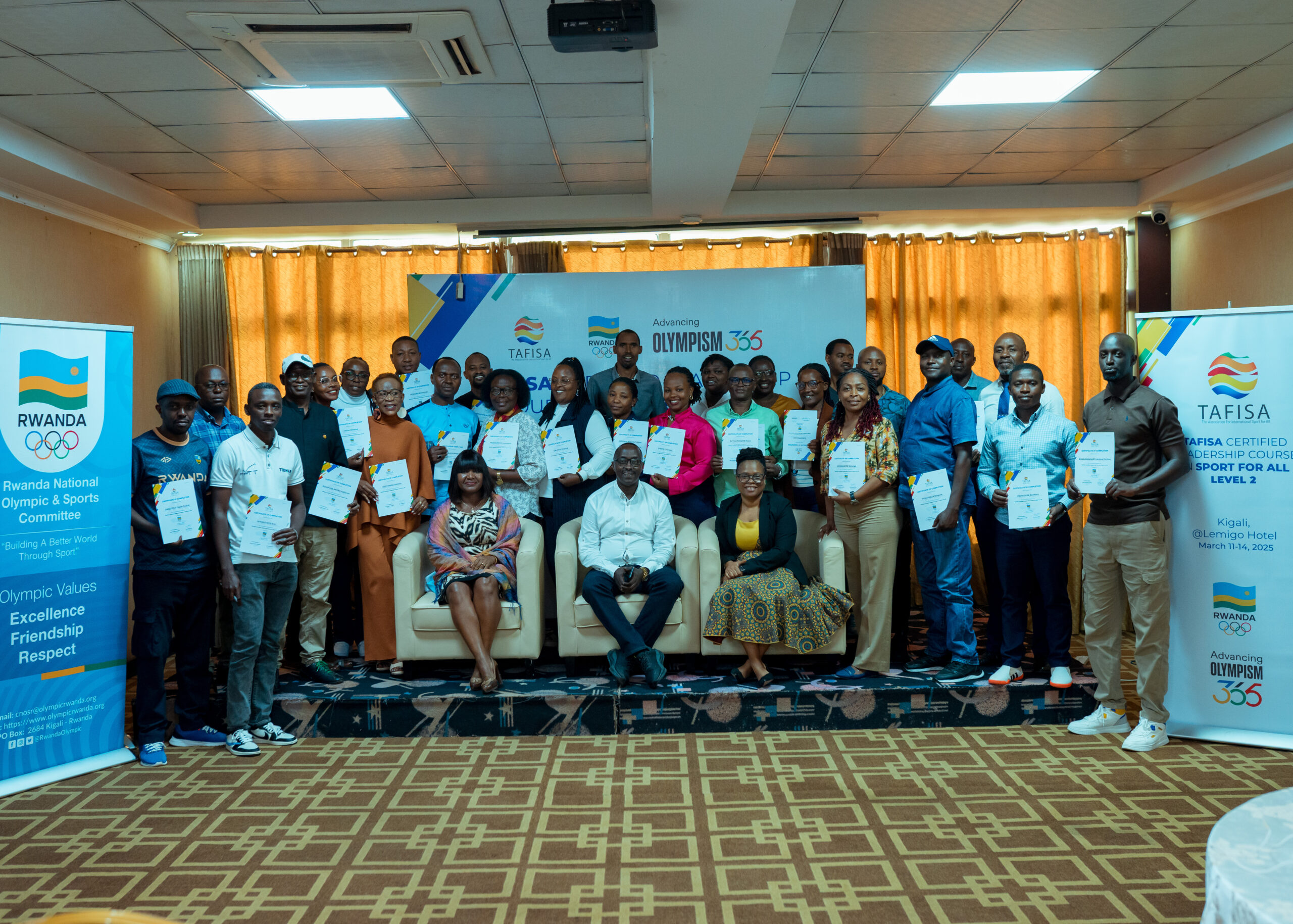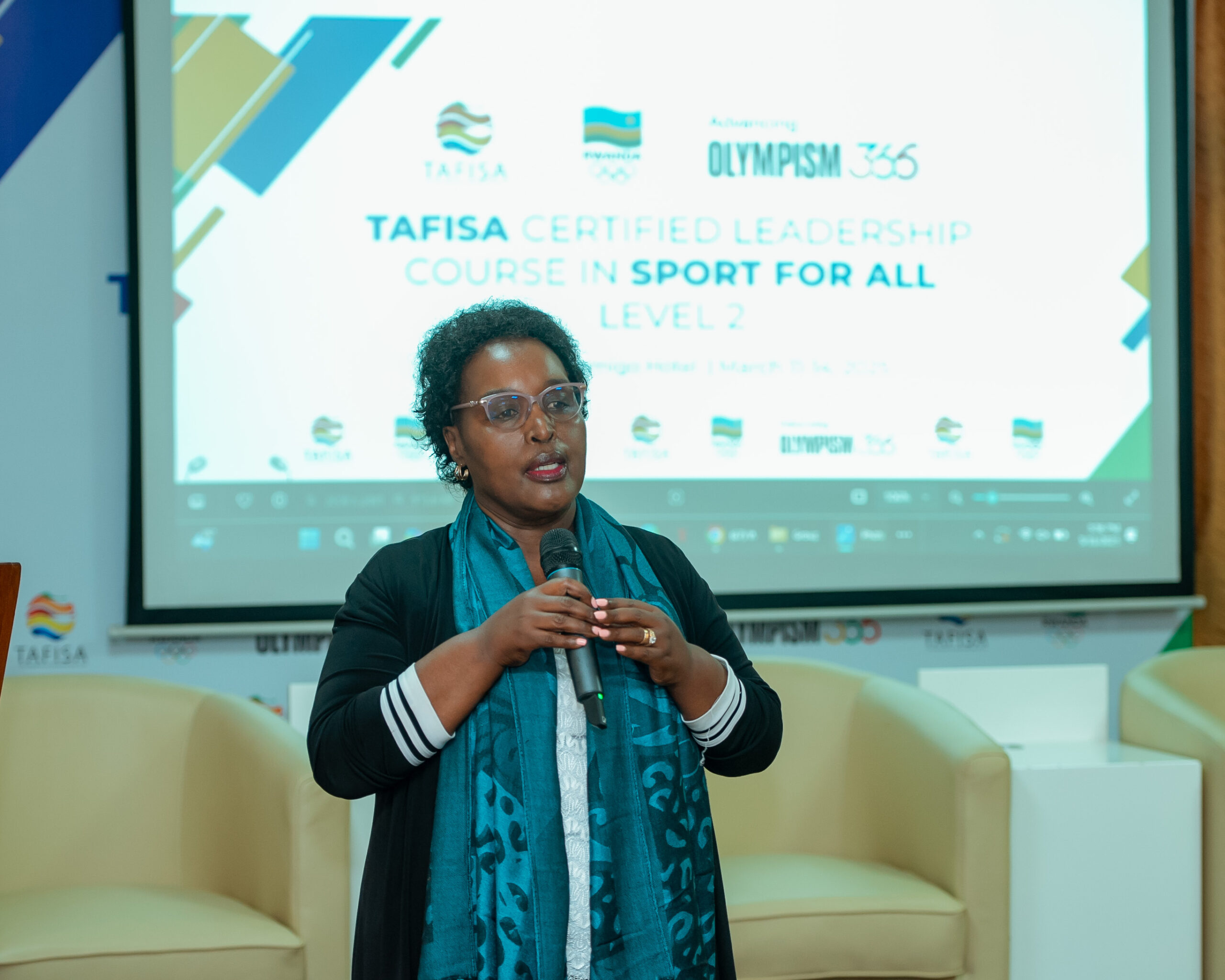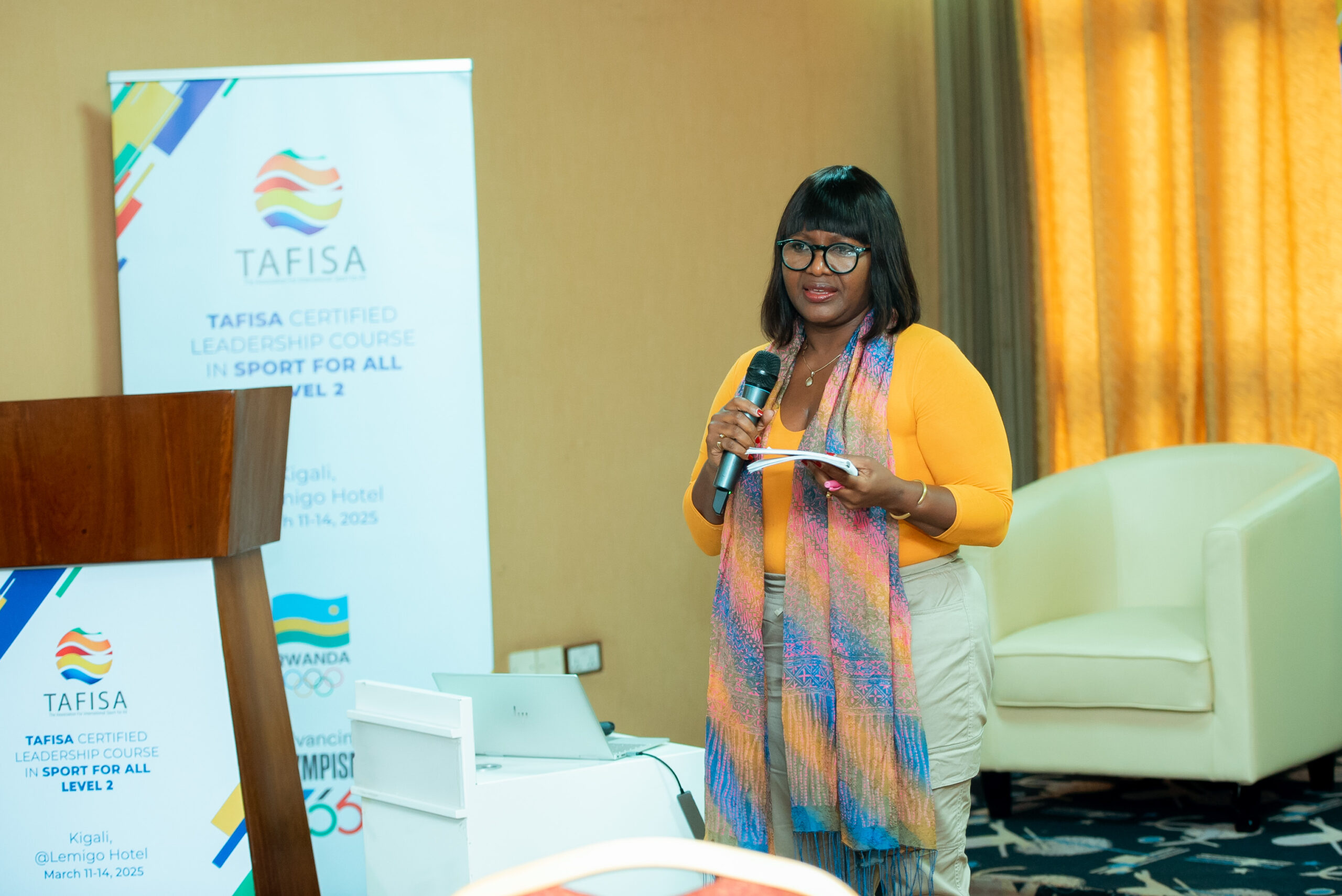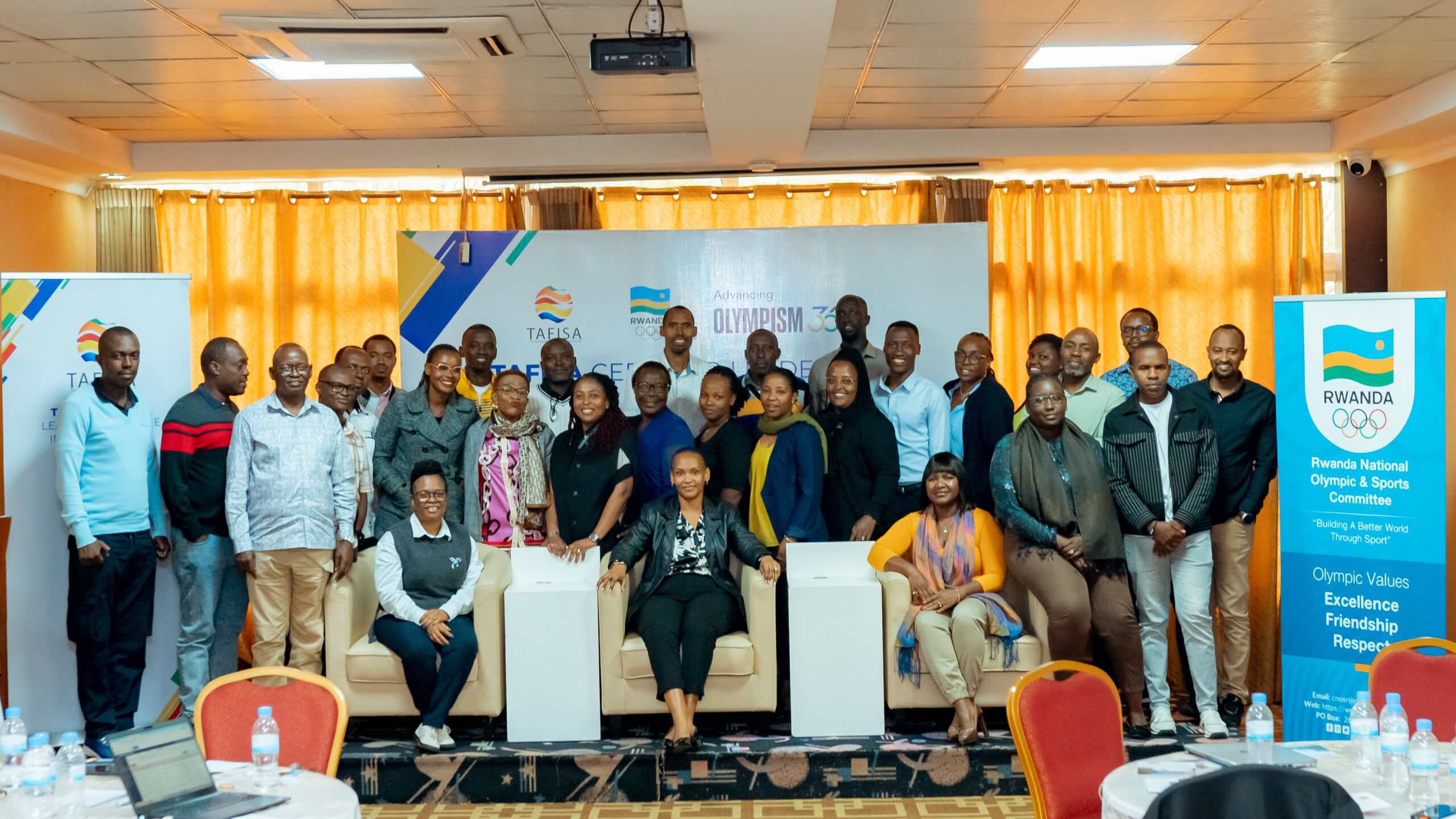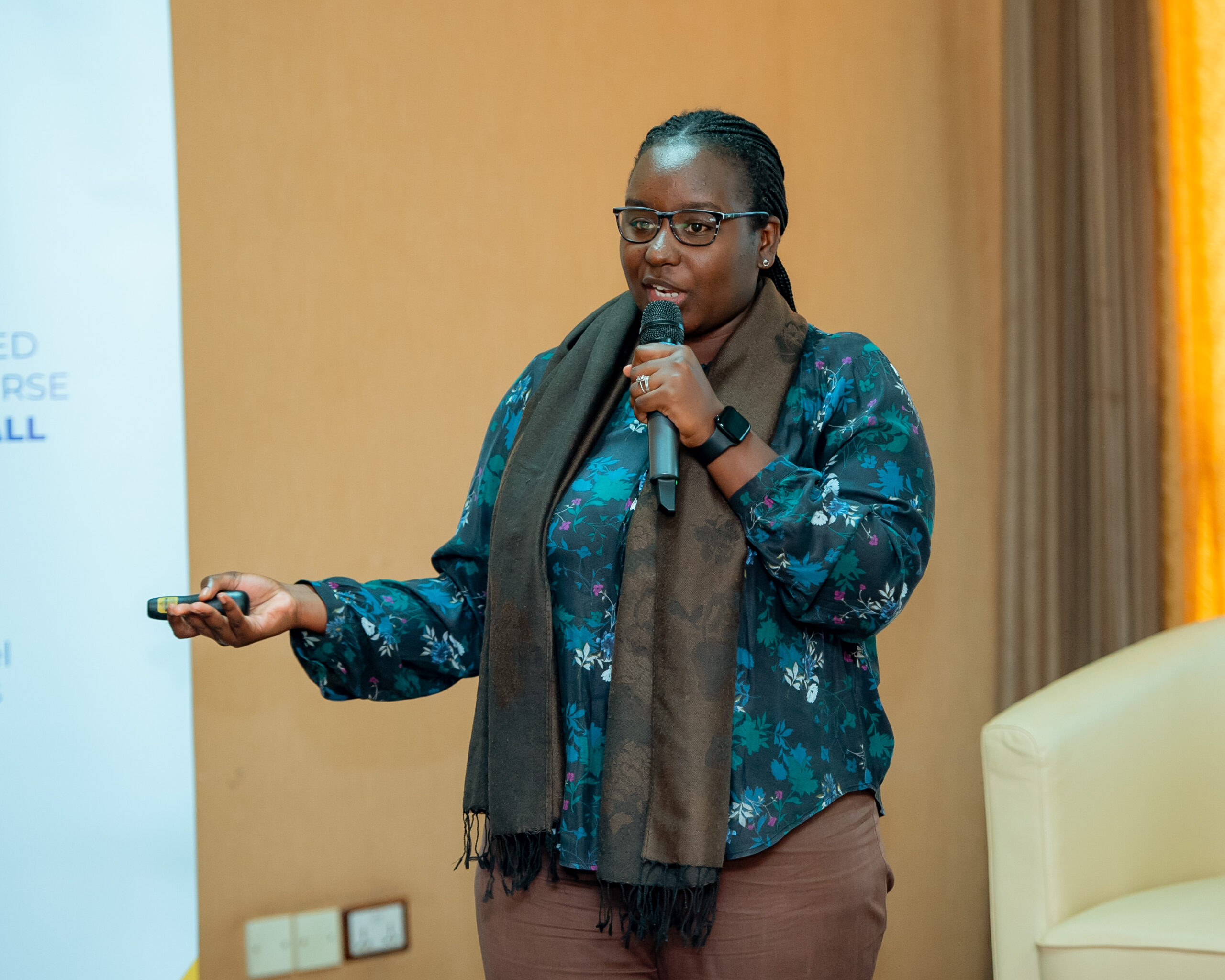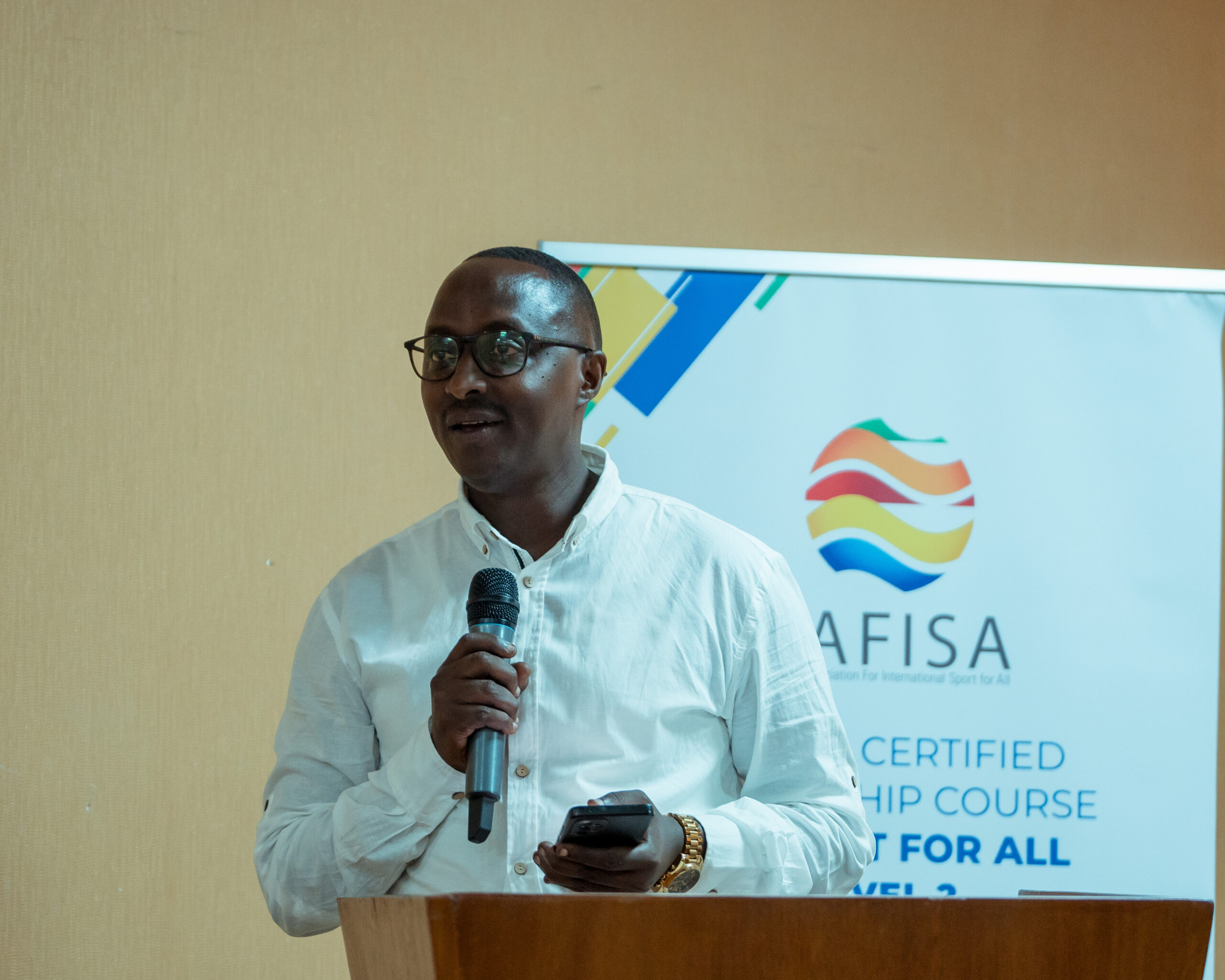The second level of the TAFISA Certified Leadership Course (TAFISA CLC2) took place from March 11th to 14th, 2025, at Lemigo Hotel, bringing together 32 sports governance personnel, facilitators, and experts to advance the global Sport for All movement. Building on the foundations laid in the first level, this four-day workshop focused on the practical implementation of strategies, policy development, and knowledge-sharing to promote inclusive and sustainable sports initiatives.
The event opened with a session on Urban Wellness, led by Game Mothibi, highlighting how cities can create active environments by mobilizing communities, developing infrastructure, and establishing supportive policies. Participants explored strategies for building active cities, emphasizing partnerships, program delivery, and effective promotion. The discussions were enriched by the insights of IOC member RWEMARIKA Felicité, who shared her experiences advocating for women’s inclusion in sports and the impact of international exposure in fostering local development.
Cultural heritage and identity in sports were key topics on the second day, with Mrs. Fiona Ishimwe guiding participants through Rwanda’s traditional games and their integration into modern Sport for All initiatives. Paulina Lanco, a TAFISA facilitator, emphasized the importance of leveraging sports to safeguard cultural heritage while also addressing economic potential. RNOSC Acting President UMULINGA Alice encouraged attendees to apply their learnings practically, while Game Mothibi explored how sports can intersect with tourism, health, and entertainment to generate revenue. The day concluded with a session on artificial intelligence in project development, offering a modern perspective on sports management.
On the third day, the focus shifted to innovation and digitalization in sports. Paulina Lanco provided a detailed breakdown of digital transformation concepts, emphasizing how technology is shaping sports participation. ISHIMWE Fiona illustrated Rwanda’s digital advancements in sports, citing examples like the Tour du Rwanda and Car-Free Day. Participants engaged in a practical session on digital tools, including Mentimeter, to enhance presentations and research-based projects. Later in the day, economic aspects of sports were explored, with Game Mothibi presenting research on the financial returns of investing in sports and guiding participants through fundraising strategies for Sport for All programs.
The final day centered on sustainable resource management, covering cost-effective practices, facility sharing, and the role of technology in efficient project implementation. Participants refined their fundraising pitches, integrating lessons learned throughout the course. The event concluded with a closing ceremony attended by RNOSC Executive Director Rugigana Jean Claude and Guest of Honor Butoyi Jean, who reaffirmed the importance of sports development in Rwanda. Certificates were awarded, and facilitators were recognized for their contributions. Special acknowledgment was given to Fiona Ishimwe and Jean Claude Byiringiro, who were officially qualified as regional facilitators. Encouraging attendees to take action, Paulina Lanco urged them to be history-makers in digitalization and active city initiatives, while Game Mothibi reminded everyone that the true work begins with implementation.
With a strong focus on policy, culture, digitalization, and economic sustainability, TAFISA CLC2 equipped participants with the necessary tools to drive impactful sports initiatives in their communities. The course’s success was evident in the enthusiasm of both facilitators and participants, setting the stage for continued growth in the Sport for All movement.

